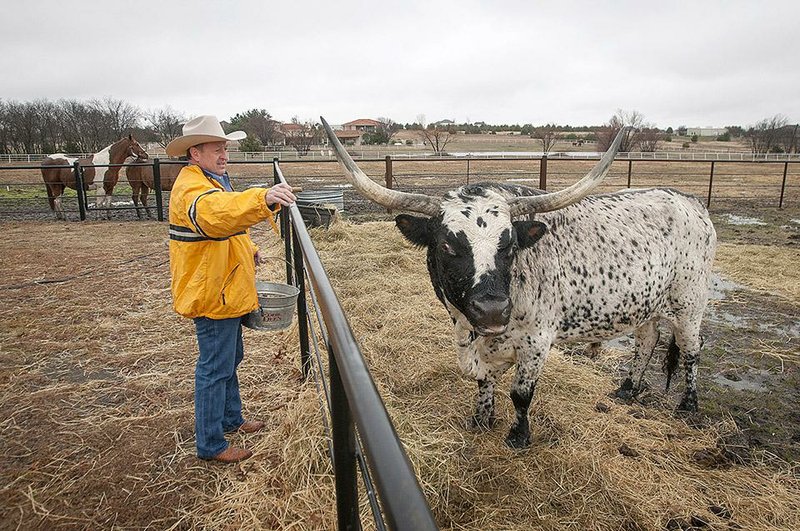AUSTIN, Texas -- When it comes to parties, ringing in the new year has nothing on the swearing-in soirees for governors across the country.
In Texas, organizers are hoping to raise $4 million to celebrate the incoming governor and are planning a concert headlined by Lady Antebellum, a parade through the state capital and a barbecue with 4 tons of brisket. Supporters of re-elected Wisconsin Gov. Scott Walker are scheduling a series of events that include a "black tie optional" gala funded in part through sponsorship packages costing up to $30,000 each.
Inaugural activities celebrating the newly elected Democratic governor in Pennsylvania will cost donors up to $50,000 apiece and include an evening "Let's Get Started" bash, with "celebratory attire" recommended.
Eleven new governors are taking office this month, and nearly two dozen others are renewing their oaths for second, third or -- in the case of Iowa Gov. Terry Branstad -- sixth terms.
In many states, corporate money that was banned before Election Day is allowed to cover the tab for inaugural parties.
Critics see the events as another means for corporations and wealthy individuals to curry political favor with the state's highest office, and in many cases without the transparency required by usual campaign finance laws.
"It's all part of the system of cronyism," said Craig McDonald, executive director of the left-leaning watchdog group Texans for Public Justice. "It's more unsettling than campaigns because the rules are much looser. It allows corporations and others to spend more money."
Not all governors are tossing fancy parties.
New York Gov. Andrew Cuomo, a Democrat, began his second term with a swearing-in and speech at One World Trade Center. Arizona Gov. Doug Ducey, a Republican who will take office with his state facing a $1.5 billion budget shortfall, also is going low-key, with a modest reception at the Capitol.
Other governors are making the most of the occasion and, in the process, soliciting donations from the types of people and business entities that typically seek to influence legislation and state regulations.
Organizers behind the celebrations for Texas Gov.-elect Greg Abbott, a Republican, are trying to raise $4 million, a record amount for a gubernatorial inauguration in the state.
Owners of the San Antonio Spurs and Houston Texans, as well as Wal-Mart heiress Alice Walton, are among those steering Abbott's inaugural committee. They also gave to his campaign.
Like most states, Texas does not require public disclosure of the contributors to inaugural festivities. Financial limits that keep big money in check during campaigns typically do not apply.
In states where donors are disclosed, corporations are shown to play a major role.
Blue Cross Blue Shield and shoemaker New Balance each have given $25,000 toward the inaugural celebration of Massachusetts Gov.-elect Charlie Baker, a Republican.
The inaugural committee established for another Republican, South Carolina Gov. Nikki Haley, took contributions ranging from $5,000 to $25,000 each from such companies as Duke Energy; Blue Cross Blue Shield; and Altria, the nation's largest cigarette maker, for her 2011 swearing-in festivities. Her campaign manager, Tim Pearson, said Haley's supporters are seeking donations in the same range for events surrounding this year's inauguration Jan. 14.
Many inaugural fundraising committees ultimately make at least some financial information public.
Aides to Georgia Gov. Nathan Deal said he planned to disclose the donors to his swearing-in activities. His inauguration includes a concert from country star Alan Jackson.
Deal, a Republican, was criticized in 2011 for not detailing how his inaugural money was spent, but he did disclose donor names afterward. AT&T and Cigna were among those making contributions.
He and other governors throwing big parties reject suggestions of influence-buying.
"This privately funded gala celebration is a way to thank Georgians in every corner of their state for their support of the governor and the rest of our statewide elected officials," Deal spokesman Jennifer Talaber said.
Washington is among the few states that have taken steps to curb the potential for influence-buying in inaugural celebrations.
Its inaugural balls are planned by a nonpartisan committee of citizen volunteers, with all costs covered by the price of admission. Corporate sponsors such as Microsoft or Bank of America sometimes pay for their own receptions beforehand for VIP attendees, said Dan Neuhauser, president of the Governor's Inaugural Ball Committee.
Information for this article was contributed by Seanna Adcox, Bob Christie, Gary Fineout, Kathleen Foody, Peter Jackson, Rachel La Corte, Steve LeBlanc, Kerry Lester, Susan Montoya and Michael Virtanen of The Associated Press.
A Section on 01/04/2015

